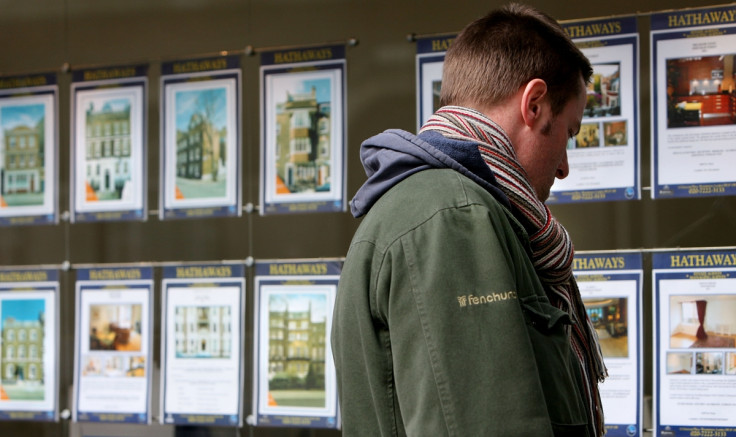'Struggling' house prices dropped in nearly all regions of England and Wales during March

House prices fell in eight of the 10 regions of England and Wales during March, said the Land Registry. Affordability issues for first-time buyers and the political uncertainty surrounding the European Union referendum are weighing on demand in the property market.
On a month-on-month basis, Land Registry said the average price fell in all regions except London and the East of England, where the housing supply shortage is most intense. For England and Wales as a whole, the average price fell 0.5% between February and March to £189,901.
"House prices are struggling right now, having failed to pick up following last month's dip," said Richard Sexton, director of chartered surveyor e.surv. "And while a strong lending environment is helping prospective buyers, the affordability of current high prices is proving a final hurdle to homeownership. Slow and steady is the mantra."
There had been a late surge in buy-to-let activity ahead of 1 April, the start of a new tax year, when a stamp duty rise of 3% on purchases of additional properties came into effect, though the Land Registry data suggests this had little impact on prices.
| Region | Monthly change (%) | Annual change (%) | Average price (£) |
| London | 0.2 | 13.9 | £534,785 |
| East | 0.2 | 10.7 | £220,989 |
| North West | -0.1 | 5.3 | £116,018 |
| East Midlands | -0.3 | 5.7 | £140,219 |
| South East | -0.4 | 10.3 | £266,729 |
| South West | -0.9 | 5.8 | £197,085 |
| Wales | -0.9 | 3.5 | £122,221 |
| North East | -1.2 | -0.7 | £97,581 |
| West Midlands | -2 | 3.1 | £140,528 |
| Yorkshire & The Humber | -2.6 | 1.6 | £121,841 |
"Looking ahead, with the temporary boost from April's stamp duty surcharge now behind us, upward pressure on house prices should ease," said a note from Capital Economics, a research consultancy. "Thus, with house prices already high, and the economic outlook fairly subdued, we expect house price growth to moderate over the remainder of the year, to perhaps 2% year-on-year."
On an annual basis, prices are still rising strongly. Demand is underpinned by cheap credit thanks to the Bank of England's record-low base rate and government schemes to support first-time buyers, such as Help to Buy and shared ownership. A lack of supply, with housebuilding running at around half the level needed to meet demand, pushes prices higher.
But high prices and rents are locking many aspiring homeowners out of the market, even with support schemes available to them. Some struggle to save for a deposit or obtain mortgages large enough. The Bank of England has capped mortgage lending to fend off the risk of a credit bubble while interest rates are abnormally low and house prices grow quickly.
Land Registry said, year-on-year, the average house price for England and Wales was up 6.7%. In London, where prices are highest and rising fastest, the average lifted 0.2% over the month and 13.9% annually to £534,895 in March. The north-east was the only region to register an annual fall. The average dropped 0.7% over the year to £97,581.
© Copyright IBTimes 2025. All rights reserved.





















